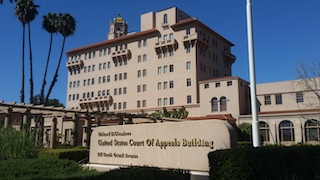When one speaks to a criminal defense attorney about the preliminary hearing, there is often a casual comment from the attorney that such a hearing “is just a probable cause” hearing. Indeed, many judges regard the preliminary hearing as almost superfluous and of no consequence.
We at Greg Hill & Associates understand such comments, but we do not underestimate the practical value of the hearing if a witness later does not appear for trial and is found legally unavailable. A witness at trial may also be considered unavailable if he invokes the Fifth Amendment to avoid testifying. United States v. Shayota (9th Cir., 2019) 934 F. 3d 1049, 1052.
In such a situation, the preliminary hearing transcript can be read to the jury for the testimony of the missing, legally unavailable witness. Such a reading does not violate defendant’s Sixth Amendment right to confront a witness offered against him, “so long as the defendant had a prior opportunity for cross-examination.” Crawford v. Washington (2004) 541 U.S. 36, 68; accord California v. Green (1970) 399 U.S. 149, 165.
 U.S. Ninth Circuit Court of Appeals Pasadena
U.S. Ninth Circuit Court of Appeals Pasadena
An example of this situation was recently put to the test by Raymond Gibbs and Deyna Khalill and the U.S. Ninth Circuit Court of Appeals in Pasadena.
On the evening of July 25, 2008, Adiel Quezada was found shot to death in Los Angeles. Gibbs, Khalill and a third defendant were arrested and charged with Quezada’s murder.
The key prosecution witness was Samuel Feissa, an informant who said that both Gibbs and Khalill confessed to the crime.
At the preliminary hearing, Feissa testified that he was a former member of a criminal street gang called the 135 Piru and that Gibbs and Khalill were also members. According to Feissa, Khalill had admitted that he and Gibbs killed Quezada. In a separate conversation, Feissa said, Gibbs too had admitted that he and Khalill killed Quezada. Feissa also testified that he visited Khalill’s house and saw guns of the same caliber as those used in the murder.
Counsel for Gibbs and Khalill cross-examined Feissa. They asked Feissa a series of questions about his motive to lie and his potential biases. Under cross-examination, Feissa testified about the leniency he had received from prosecutors for crimes he had committed, about cash payments and other benefits he had received from police officers, and about his history of drug use and memory problems.
During some of the lines of questioning, the judge cut off or limited the cross-examination. In doing so, he emphasized that “[t]here are limitations on cross-examination at a preliminary hearing,” stating that the proceeding “is not a trial and there is not a jury here.”
Later, Khalill’s attorney asked Feissa about a pending investigation into Feissa as a suspect in another murder. Feissa invoked his Fifth Amendment right to remain silent. Gibbs’ counsel then asked Feissa about his activities with the gang and Feissa again invoked his Fifth Amendment right to remain silent.
After Feissa finished testifying, defendants argued that the judge should strike all of Feissa’s testimony because the prosecution had not disclosed certain promises it had made to Feissa in exchange for his testimony. The judge denied the motion.
At trial, Feissa invoked the Fifth Amendment not to answer any questions. The judge sustained his assertion of the privilege and determined that Feissa was unavailable as a witness. The judge then ordered Feissa’s preliminary hearing testimony read to the jury.
The next day, the jury returned a verdict of guilty as to each defendant. The court sentenced Gibbs to state prison for 50 years to life. It also sentenced Khalill to life in prison without the possibility of parole.
Both Gibbs and Khalill appealed the judge’s ruling that Feissa was an unavailable witness and the reading of the preliminary hearing transcript. The Court of Appeals for the Second Appellate District affirmed and then Gibbs and Khalill appealed in a petition for writ of habeas corpus to the U.S. Ninth Circuit Court of Appeals, which also affirmed.
The Ninth Circuit ruled that defendants had an adequate opportunity to cross-examine Feissa at the preliminary hearing, so the introduction of his testimony did not violate the Sixth Amendment right to confrontation. The Ninth Circuit commented that the trial court’s order to limit cross-examination of Feissa at the preliminary hearing was proper to “preclude repetitive and unduly harassing interrogation.” Davis v. Alaska (1974) 415 U.S. 308, 316.
We offer this article to exemplify why it is critical to be ready to cross-examine each witness as if at trial at the preliminary hearing in case that witness is later found unavailable at trial.
The citation for the U.S. Ninth Circuit Court of Appeal ruling discussed above is Raymond Lequan Gibbs v. Patrick Covello (9th Cir., 2021) 996 F. 3d 596.
For more information about unavailable witness issues, please click on the following articles:
 U.S. Ninth Circuit Court of Appeals Pasadena
U.S. Ninth Circuit Court of Appeals Pasadena